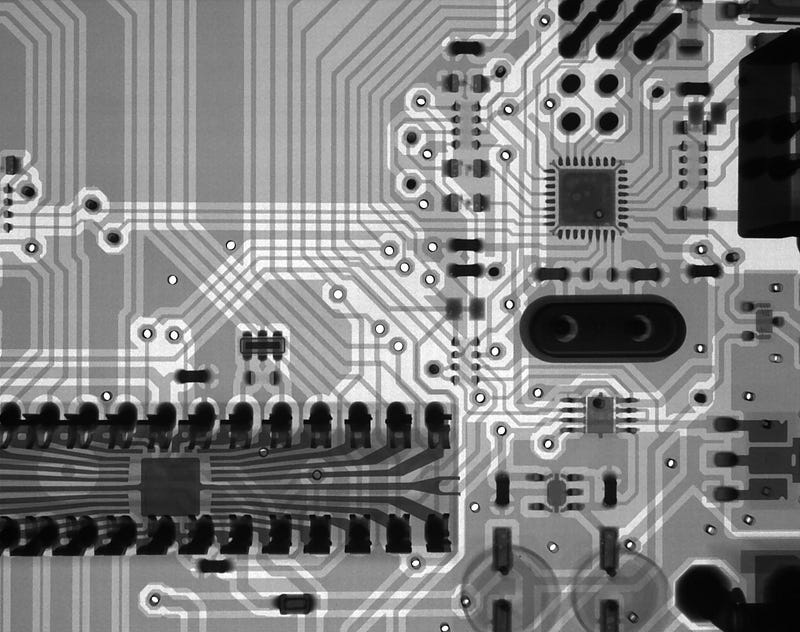
Welcome, tech enthusiasts and future quantum overlords (hopefully benevolent ones)! Today, we’re venturing into the realm of the mind-bending and the truly groundbreaking: Quantum Computing!
For decades, quantum computers existed only in the realm of science fiction — powerful machines capable of calculations beyond the wildest dreams of traditional computers. But guess what? The future is now, and quantum computing is no longer a futuristic fantasy. Researchers are making incredible strides, and this revolutionary technology is poised to fundamentally change the world as we know it.

But before we delve into potential world domination (we’re kidding… mostly), let’s demystify this complex concept. Buckle up, because we’re about to explore:
- The fundamentals of quantum mechanics and how they power quantum computers.
- What makes quantum computers so different from their classical counterparts?
- What are the potential applications of quantum computing in various industries?
- What are the current challenges and limitations of this technology?
- Is quantum computing a threat to our existing jobs, or will it create entirely new ones?
Ready? Let’s unlock the power of the quantum realm!
Beyond Bits: The Weird World of Quantum Mechanics
Traditional computers rely on bits, which can be either 0 or 1. This binary system forms the foundation of all modern computing. Quantum computers, however, exploit the bizarre laws of quantum mechanics to operate on a whole new level. Here are some key concepts you need to know:
- Qubits: The basic unit of information in a quantum computer is called a qubit. Unlike bits, qubits can exist in a state of superposition, meaning they can be 0, 1, or both simultaneously (known as a quantum superposition). Imagine a coin spinning in the air — it’s both heads and tails until it lands. That’s the weirdness of superposition!
- Entanglement: This mind-bending concept allows two qubits to be linked, regardless of physical distance. Changing one entangled qubit instantly affects the other, even if they’re separated by vast distances. It’s like spooky action at a distance, as Albert Einstein famously called it.
The Quantum Advantage: Why Qubits Rule

So, how do these strange quantum properties translate into computing power? Here’s the deal:
- Parallel Processing on Steroids: Quantum computers can perform calculations on multiple possibilities simultaneously thanks to superposition. This allows them to tackle problems that would take traditional computers years, if not centuries, to solve.
- Breaking the Encryption Code: Many of our current encryption algorithms rely on the difficulty of factoring large numbers. Quantum computers have the potential to crack these codes, posing a significant challenge for cybersecurity. (Don’t worry, researchers are already developing quantum-resistant encryption methods!)
The Quantum Revolution: Applications Across Industries
With their unparalleled processing power, quantum computers hold immense potential in various fields:
- Drug Discovery: Simulating complex molecules can help accelerate drug discovery and development. Imagine designing new life-saving medications in a fraction of the time it takes currently.
- Materials Science: Quantum computing can aid in the design of new materials with superior properties, paving the way for advancements in areas like energy, electronics, and aerospace.
- Financial Modeling: Quantum algorithms could be used to analyze complex financial data and predict market trends with greater accuracy.
- Artificial Intelligence: The vast computational power of quantum computers could be harnessed to develop more powerful and sophisticated AI algorithms.
- Cryptography: While a threat to current encryption methods, quantum computing could also lead to the development of unbreakable encryption algorithms in the future.
Quantum Computing: Challenges and the Road Ahead
As exciting as quantum computing sounds, it’s still in its early stages. Here are some challenges that need to be addressed:
- Maintaining Qubit Coherence: Qubits are incredibly sensitive to their environment and prone to errors. Researchers are working on building more stable and reliable quantum systems.
- Scalability: Building large-scale quantum computers remains a significant challenge. We’re still far from having quantum computers as powerful as traditional supercomputers.
- Quantum Software Development: Developing algorithms that can effectively harness the power of quantum computers is another hurdle.
The Rise of the Quantum Workforce: Friend or Foe?

One major concern surrounding quantum computing is the potential impact on jobs. Will these powerful machines render our current skills obsolete? Here’s the (hopefully) reassuring answer:
- New Jobs Will Be Created: While some jobs may be automated, quantum computing will also create entirely new fields like quantum software development and quantum engineering.
- Reskilling and Upskilling: The future workforce will need to adapt and learn new
